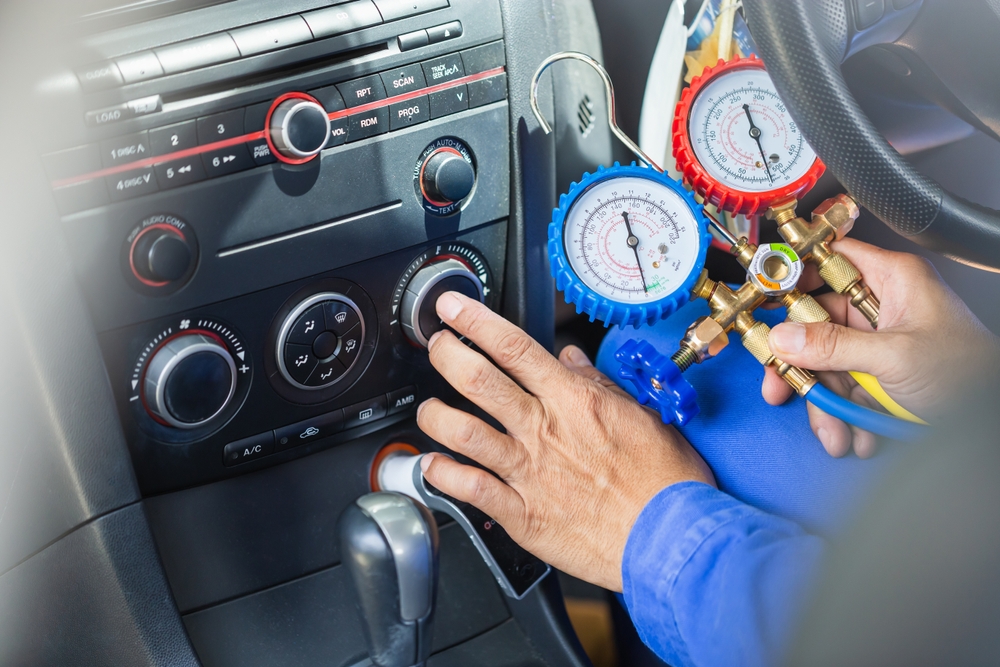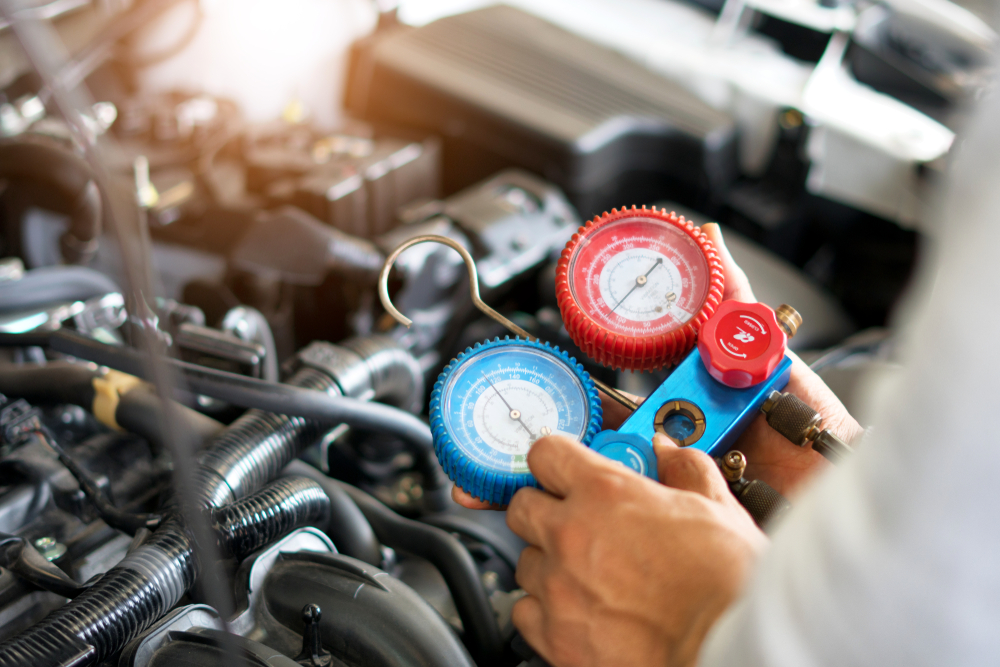
Driving on a hot summer day with a broken air conditioning (AC) system can be a frustrating and uncomfortable experience. Many drivers might be tempted to delay repairs due to the costs involved or the perceived inconvenience of visiting a mechanic. However, ignoring a malfunctioning vehicle AC system can lead to more significant issues beyond just discomfort.
Impact on Comfort and Safety
Comfort
The primary function of a vehicle’s AC system is to regulate interior temperature and humidity levels to provide comfort to the driver and passengers. When the AC system is not functioning correctly, it can result in a sweltering cabin environment, making driving unpleasant and potentially distracting. In extreme heat, discomfort can escalate to health concerns such as dehydration or heat exhaustion, particularly for vulnerable individuals like children or the elderly.
Safety
Comfort directly impacts safety on the road. An uncomfortable driver is more likely to be distracted, increasing the risk of accidents. Furthermore, driving with fogged-up windows due to a malfunctioning AC can impair visibility, compromising safety further. Clear visibility is critical for making informed decisions while driving, such as reacting to road hazards or sudden maneuvers by other vehicles.
Potential Damage to the Vehicle
Strain on Other Components
A malfunctioning AC system can place undue strain on other vehicle components. For instance, when the AC compressor fails, it can lead to issues with the serpentine belt or other related parts. Over time, this strain can accelerate wear and tear on the engine, potentially leading to more expensive repairs down the road.
Refrigerant Leaks
One common issue with AC systems is refrigerant leaks. Ignoring a leak can lead to a complete loss of refrigerant, rendering the AC system ineffective. Moreover, refrigerant leaks can harm the environment and are detrimental to the ozone layer if not properly addressed.
Long-Term Financial Implications
Cost of Repairs
While repairing a vehicle’s AC system may seem like an unnecessary expense, delaying repairs can result in more extensive damage, ultimately leading to higher repair costs. Addressing AC issues promptly can prevent minor problems from escalating into major repairs that are more complex and costly.
Resale Value
A well-maintained vehicle, including its AC system, retains higher resale value. Potential buyers are likely to inspect the functionality of the AC system, and a broken or poorly functioning AC can deter buyers or reduce the vehicle’s resale price.
Environmental Impact
Refrigerant Emissions
Refrigerants used in vehicle AC systems, such as R-134a, can contribute to global warming if released into the atmosphere. A malfunctioning AC system with a refrigerant leak can lead to significant emissions over time. Promptly repairing leaks helps minimize environmental impact and demonstrates responsible vehicle ownership.
Conclusion
Ignoring a broken vehicle AC system can have far-reaching consequences beyond mere discomfort. From compromising safety and comfort to potentially causing environmental harm and increasing long-term repair costs, the ramifications of neglecting AC issues are substantial. Addressing AC problems promptly not only ensures a more comfortable and safer driving experience but also contributes to the overall longevity and value of the vehicle. Therefore, it is crucial for vehicle owners to prioritize regular maintenance and timely repairs of their AC systems to mitigate these risks effectively. By doing so, they can enjoy worry-free driving experiences while also being environmentally conscious and financially prudent.
Need an Auto Repair Shop in Grand Junction, CO?
Since 1976, Scotty’s Complete Car Care Center has been proud to have a strong presence in the great community that we all live in. As a family owned and operated business Scotty’s has evolved from a small two bay muffler shop to Your Complete Car Care Center. Scotty’s Complete Car Care Center now houses more than 23 repair bays to perform anything from quick full service oil changes to engine repair in the undercar center. It is important to everyone at Scotty’s Complete Car Care Center to provide the Grand Valley with quality auto repairs at a fair price. Contact us today to learn more about what we can do for you!
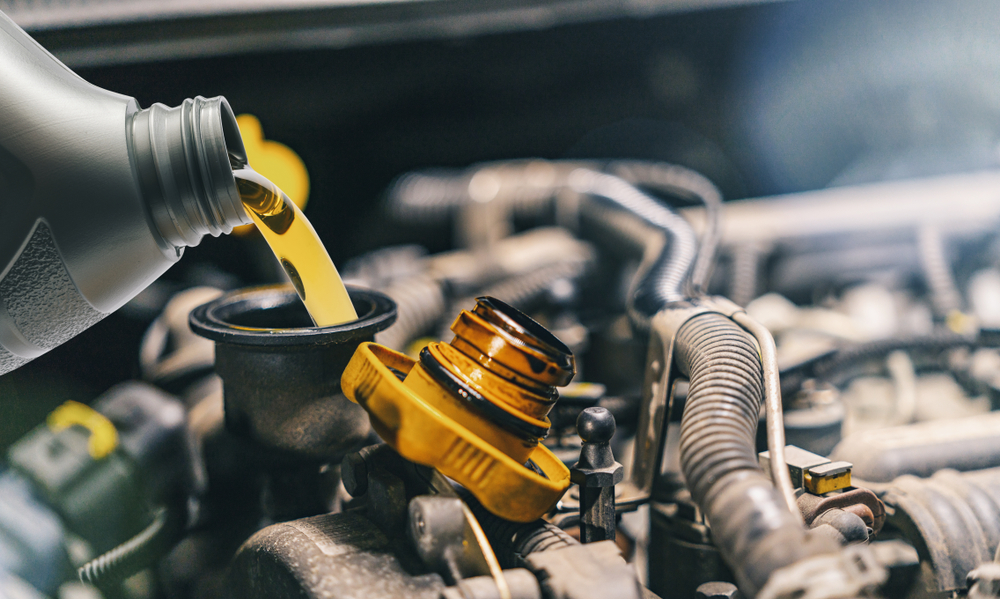
Regular oil changes are essential for maintaining the health and performance of your vehicle’s engine, and synthetic oil has become increasingly popular for its superior lubrication and longevity. However, determining how often to change synthetic oil can be confusing, as it typically lasts longer than conventional oil. In this article, we’ll explore the recommended “Synthetic oil change intervals” and provide guidance on how often to change synthetic oil to keep your engine running smoothly.
Understanding Synthetic Oil
Synthetic oil is engineered from specially formulated chemical compounds to provide superior lubrication and protection for modern engines. Unlike conventional mineral oil, synthetic oil undergoes a more rigorous refining process, resulting in a purer and more uniform molecular structure. This allows synthetic oil to offer better performance in extreme temperatures, reduce engine wear, and provide longer-lasting protection against friction and heat buildup.
Factors Affecting Oil Change Frequency
Several factors influence how often you should change synthetic oil, including:
- Vehicle Make and Model: Different vehicles have different oil change intervals recommended by their manufacturers. Consult your vehicle’s owner’s manual or manufacturer guidelines for specific recommendations.
- Driving Conditions: Your driving habits and the conditions in which you operate your vehicle can affect oil change frequency. Stop-and-go city driving, towing heavy loads, or driving in extreme temperatures can place additional stress on your engine and may require more frequent oil changes.
- Oil Type: While synthetic oil generally lasts longer than conventional oil, there are different types of synthetic oils available, each with its own performance characteristics and recommended change intervals.
- Oil Quality: The quality of the synthetic oil you use can also impact change intervals. High-quality synthetic oils may offer better protection and last longer between changes compared to lower-quality options.
Recommended Synthetic Oil Change Intervals
While synthetic oil can provide extended protection compared to conventional oil, it’s still important to adhere to recommended change intervals to maintain engine performance and longevity. Here are some general guidelines for synthetic oil change intervals:
- Every 7,500 to 10,000 Miles: Many vehicle manufacturers recommend changing synthetic oil every 7,500 to 10,000 miles or every six to 12 months, whichever comes first. This interval is suitable for most drivers under normal operating conditions.
- Follow Manufacturer Recommendations: Always follow the oil change intervals recommended by your vehicle’s manufacturer. These guidelines are based on extensive testing and engineering specifications tailored to your specific make and model.
- Consider Your Driving Habits: If you frequently drive in severe conditions, such as extreme temperatures, heavy traffic, or dusty environments, you may need to change synthetic oil more often. Consult your owner’s manual for guidance on adjusting change intervals based on driving conditions.
- Monitor Oil Life Indicator: Many modern vehicles are equipped with oil life monitoring systems that analyze engine operating conditions and recommend oil changes based on actual usage. Pay attention to your vehicle’s oil life indicator and follow its recommendations for timely oil changes.
Benefits of Regular Oil Changes
Regular oil changes are essential for maintaining engine health and performance. Here are some benefits of sticking to recommended oil change intervals:
- Engine Protection: Fresh oil helps lubricate engine components, reduce friction, and prevent wear and tear, extending the life of your engine.
- Improved Fuel Efficiency: Clean oil and a well-lubricated engine operate more efficiently, resulting in better fuel economy and performance.
- Reduced Emissions: A properly lubricated engine produces fewer harmful emissions, contributing to a cleaner environment and compliance with emissions regulations.
- Peace of Mind: Regular oil changes provide peace of mind knowing that your engine is well-maintained and protected against premature wear and potential breakdowns.
Summary
While synthetic oil offers superior performance and longevity compared to conventional oil, it’s still important to adhere to recommended change intervals to ensure optimal engine health and performance. By following manufacturer guidelines, considering your driving habits, and monitoring oil life indicators, you can determine how often to change synthetic oil for your vehicle. Regular oil changes are a small investment that can pay off in the form of improved engine longevity, reliability, and performance for years to come.
Need an Auto Repair Shop in Grand Junction, CO?
Since 1976, Scotty’s Complete Car Care Center has been proud to have a strong presence in the great community that we all live in. As a family owned and operated business Scotty’s has evolved from a small two bay muffler shop to Your Complete Car Care Center. Scotty’s Complete Car Care Center now houses more than 23 repair bays to perform anything from quick full service oil changes to engine repair in the undercar center. It is important to everyone at Scotty’s Complete Car Care Center to provide the Grand Valley with quality auto repairs at a fair price. Contact us today to learn more about what we can do for you!
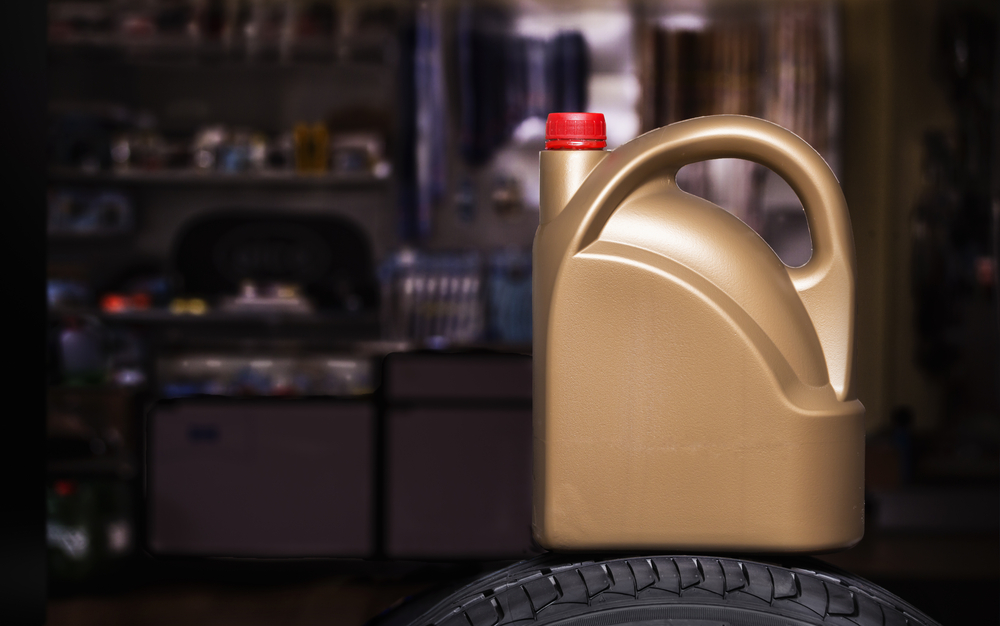
As vehicles age, their engines require extra care and attention to maintain optimal performance and longevity. One question that often arises among car owners is whether switching to full synthetic oil is beneficial for older engines. In this blog, we’ll delve into the topic of Full synthetic oil for older engines and explore the potential benefits and considerations of using synthetic oil in aging vehicles.
Understanding Full Synthetic Oil
Before diving into its impact on older engines, it’s essential to understand what full synthetic oil is and how it differs from conventional motor oil. Full synthetic oil is engineered from highly refined base oils and advanced additives, offering superior performance and protection compared to conventional oils. It boasts higher viscosity stability, better resistance to thermal breakdown, and improved lubrication properties, making it an attractive option for drivers seeking enhanced engine protection and performance.
Benefits of Synthetic Oil in Aging Vehicles
While conventional wisdom may suggest that older engines require conventional motor oil, there are several compelling reasons to consider switching to full synthetic oil:
- Enhanced Engine Protection: Older engines may exhibit signs of wear and tear, such as increased friction, reduced compression, and oil leaks. Full synthetic oil’s advanced formulation provides better lubrication and wear protection, helping to minimize engine wear and extend its lifespan.
- Improved Fuel Efficiency: Synthetic oils have lower viscosity and better flow properties than conventional oils, resulting in reduced friction and improved fuel efficiency. This can be particularly beneficial for older engines, which may experience decreased efficiency due to wear and internal friction.
- Better Cold-Start Performance: Older engines may struggle to start in cold weather conditions, especially if they are equipped with high-mileage or worn components. Full synthetic oil flows more freely at low temperatures, providing better cold-start performance and reducing engine wear during startup.
- Extended Oil Change Intervals: Synthetic oils have superior thermal stability and resistance to oxidation, allowing them to maintain their viscosity and performance characteristics for longer periods. This means that drivers can potentially extend their oil change intervals when using full synthetic oil, reducing maintenance costs and hassle for owners of older vehicles.
- Reduced Engine Deposits: Synthetic oils are less prone to forming sludge, deposits, and varnish buildup compared to conventional oils. This can help keep older engines cleaner and free from harmful contaminants, improving overall engine performance and reliability over time.
Considerations for Older Engines
While full synthetic oil offers several benefits for older engines, there are a few considerations to keep in mind:
- Compatibility: Before switching to full synthetic oil, it’s essential to check whether it is compatible with your vehicle’s engine specifications and requirements. Some older engines may not be designed to handle synthetic oils, or they may require specific formulations or viscosities.
- Oil Consumption: Older engines may experience higher oil consumption compared to newer engines, especially if they have worn seals or gaskets. While synthetic oils can help reduce oil consumption to some extent, it’s essential to monitor oil levels regularly and address any leaks or issues promptly.
- Cost: Full synthetic oil typically comes at a higher price point than conventional motor oil. While the potential benefits of synthetic oil may justify the additional cost for some drivers, others may prefer to stick with conventional oil to save money, especially for older vehicles with limited remaining lifespan.
- Consultation with a Mechanic: If you’re considering switching to full synthetic oil for your older vehicle, it’s advisable to consult with a qualified mechanic or automotive technician. They can provide personalized recommendations based on your vehicle’s condition, mileage, and maintenance history, ensuring that you make an informed decision that is best for your engine’s health and performance.
Summary
Full synthetic oil can have a positive impact on older engines, providing enhanced protection, improved performance, and potential cost savings over time. By understanding the benefits and considerations of using synthetic oil in aging vehicles, drivers can make informed decisions about their engine maintenance and choose the oil that best suits their needs. Whether you’re looking to extend your engine’s lifespan, improve fuel efficiency, or reduce maintenance costs, full synthetic oil offers a compelling option for owners of older vehicles seeking optimal performance and reliability.
Need an Auto Repair Shop in Grand Junction, CO?
Since 1976, Scotty’s Complete Car Care Center has been proud to have a strong presence in the great community that we all live in. As a family owned and operated business Scotty’s has evolved from a small two bay muffler shop to Your Complete Car Care Center. Scotty’s Complete Car Care Center now houses more than 23 repair bays to perform anything from quick full service oil changes to engine repair in the undercar center. It is important to everyone at Scotty’s Complete Car Care Center to provide the Grand Valley with quality auto repairs at a fair price. Contact us today to learn more about what we can do for you!
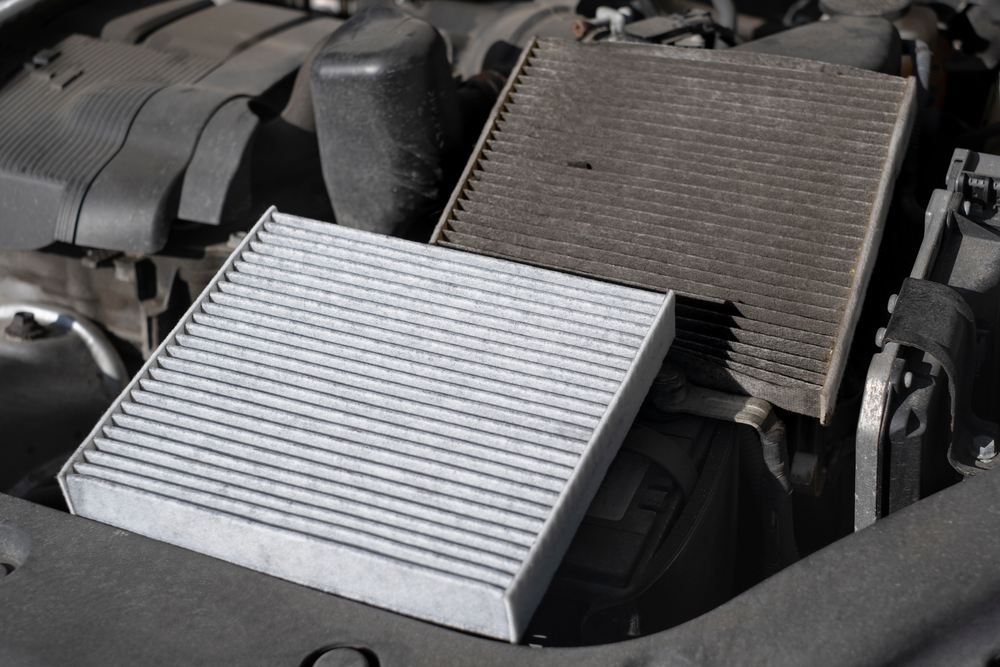
Driving can be an enjoyable experience, but the quality of the air inside your vehicle can have a significant impact on your health and comfort. Cabin air filters play a crucial role in improving air quality inside your vehicle by filtering out harmful pollutants, allergens, and contaminants. In this blog post, we will explore how cabin air filters work and the benefits they provide in enhancing air quality for a healthier and more pleasant driving experience.
Understanding Cabin Air Filters
Cabin air filters are an essential component of your vehicle’s ventilation system, designed to trap airborne particles and pollutants before they enter the interior of your car. They are typically located behind the glove compartment or under the dashboard and are made of a pleated filter material that can capture dust, pollen, mold spores, and other contaminants. Cabin air filters help prevent these particles from circulating inside your vehicle, ensuring that the air you breathe while driving is clean and free from harmful pollutants.
Benefits of Cabin Air Filters for Air Quality Improvement
There are several benefits to using cabin air filters to improve air quality inside your vehicle. One of the main advantages is the removal of allergens and pollutants that can trigger respiratory issues and allergies. Pollen, dust, and other airborne particles can exacerbate asthma and other respiratory conditions, so having a clean cabin air filter can help reduce the risk of breathing-related problems while driving.
Additionally, cabin air filters can help eliminate unpleasant odors and fumes from entering your vehicle. They can trap exhaust fumes, traffic pollution, and other noxious odors, providing you with a more pleasant and comfortable driving environment. This is particularly important for those with sensitivities to environmental odors or pollutants, as a clean cabin air filter can help create a healthier and more enjoyable driving experience.
Improving Driver and Passenger Comfort
By filtering out contaminants and pollutants, cabin air filters can help improve driver and passenger comfort inside the vehicle. Clean air is essential for overall well-being, and having a high-quality cabin air filter can contribute to a more comfortable and relaxing driving experience. Whether you’re stuck in traffic or cruising down the highway, clean air can make your time behind the wheel more enjoyable and stress-free.
Protecting Your HVAC System
In addition to benefiting air quality, cabin air filters also help protect your vehicle’s heating, ventilation, and air conditioning (HVAC) system. By trapping particles and contaminants, cabin air filters prevent them from entering the HVAC system and clogging up the components. This can extend the lifespan of your HVAC system and reduce the need for costly repairs and maintenance down the line. Regularly replacing your cabin air filter can prolong the life of your HVAC system and ensure that it operates efficiently.
Maintaining Optimal Performance and Efficiency
Another advantage of using cabin air filters is that they can help maintain optimal performance and efficiency for your vehicle. Clean air filters allow for proper airflow through the ventilation system, ensuring that air can circulate efficiently throughout the interior of your car. This can help your HVAC system operate more effectively, providing you with better heating, cooling, and defrosting capabilities. By regularly replacing your cabin air filter, you can ensure that your vehicle’s ventilation system is working at its best and enjoy consistent performance on the road.
Tips for Maintaining Cabin Air Filters
To maximize the benefits of cabin air filters and ensure optimal air quality inside your vehicle, it’s important to maintain them properly. Regularly inspect your cabin air filter for signs of dirt, dust, or clogs, and replace it as needed. Most manufacturers recommend replacing the cabin air filter every 12,000 to 15,000 miles, but you may need to replace it more frequently if you drive in dusty or polluted environments. Be sure to follow the manufacturer’s recommendations for your specific vehicle to ensure that your cabin air filter is working effectively.
Summary
Cabin air filters play a vital role in improving air quality inside your vehicle and creating a healthier and more comfortable driving environment. By filtering out allergens, pollutants, and contaminants, cabin air filters help protect your respiratory health, eliminate odors, and enhance overall comfort for you and your passengers. Regularly replacing and maintaining your cabin air filter can extend the life of your HVAC system, improve performance and efficiency, and ensure that you have clean and fresh air while on the road. Consider the importance of cabin air filters for air quality improvement in your vehicle and prioritize this essential maintenance task for a safer and more enjoyable driving experience.
Need an Auto Repair Shop in Grand Junction, CO?
Since 1976, Scotty’s Complete Car Care Center has been proud to have a strong presence in the great community that we all live in. As a family owned and operated business Scotty’s has evolved from a small two bay muffler shop to Your Complete Car Care Center. Scotty’s Complete Car Care Center now houses more than 23 repair bays to perform anything from quick full service oil changes to engine repair in the undercar center. It is important to everyone at Scotty’s Complete Car Care Center to provide the Grand Valley with quality auto repairs at a fair price. Contact us today to learn more about what we can do for you!

